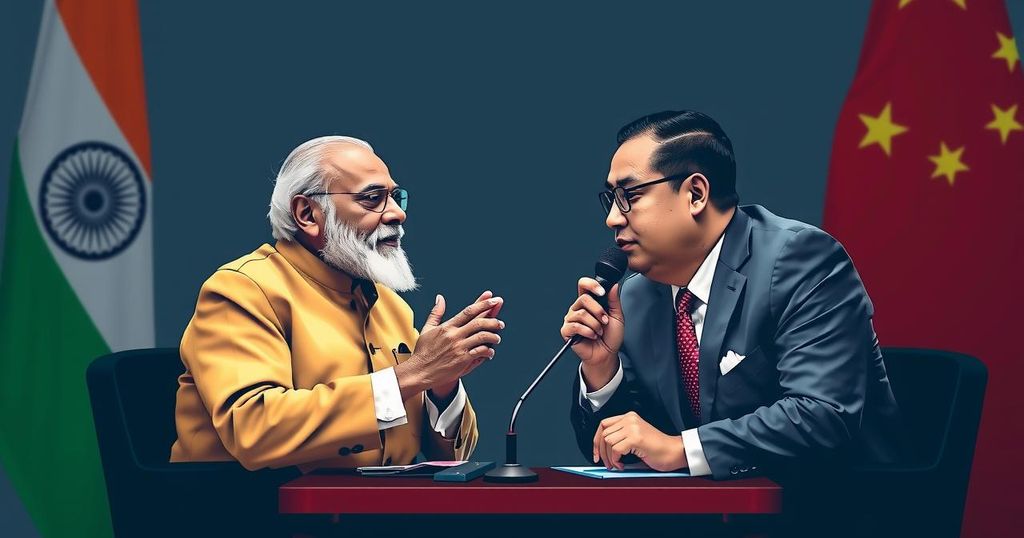Myanmar Civil Society Groups Demand Chinese Intervention Against Military Junta’s Actions
More than 270 Myanmar civil society groups have urged China to cease all threats against ethnic armed organizations and halt pressure for ceasefire agreements with the military junta. The coalition emphasizes that the junta is an illegitimate entity, directly contributing to instability, and calls for international recognition of revolutionary forces and their role in a democratic future.
More than 270 civil society organizations from Myanmar have issued a strong call to China, urging it to cease all threats directed at the nation’s ethnic armed organizations (EAOs) and to stop pressurizing these groups into ceasefire agreements and concessions with the Myanmar military junta, which is deemed illegal. The coalition of 276 groups emphasized that EAOs play a pivotal role in the ongoing revolution in Myanmar, act as legitimate authorities in their regions, and are integral to the vision of a future federal democracy. In contrast, they labeled the junta as a “criminal organization” that is at the core of the current crisis in Myanmar. This statement follows intense criticism aimed at China for its reported warning to the Ta’ang National Liberation Army (TNLA) to immediately cease its military activities and cooperate with Chinese efforts for peace and stability in the northern Shan State and along the China-Myanmar border, with threats of further punitive actions should the TNLA fail to comply. The TNLA is part of a coalition known as the Brotherhood Alliance of ethnic armies that has been actively engaged in anti-junta operations under the name Operation 1027 since the previous year. While a ceasefire was established in January through negotiations led by Beijing, hostilities resumed on June 25 after the regime bombarded TNLA territories, violating the agreement. The civil society organizations underscored that the military junta is committing widespread atrocities and is the principal instigator of regional instability. They asserted that sustainable peace in Myanmar could only be achieved through the dismantling of the junta and holding it accountable for its international violations. They urged China to halt its backing of the military regime, which undermines the efforts of revolutionary forces and civil society. Moreover, they urged China to discontinue its political support for the junta and instead recognize the National Unity Government (NUG) as the legitimate authority alongside the National Unity Consultative Council (NUCC) and the various EAOs as essential participants in Myanmar’s political framework. Nar Lin, representing the Anti-Junta Alliance Yangon (AJAY), articulated that the statement serves as a demonstration against China’s flawed policies towards Myanmar and their contrast with the aspirations of the Myanmar populace. He reiterated that their revolutionary movement does not harbor hatred towards China or any ethnic group but will reject any undue interference in their pursuit of freedom and justice. Lin cautioned that as long as the military regime persists in Myanmar, and China maintains its support for such a coalition while neglecting the plight of the people, hostilities towards China from the Myanmar populace would continue, affecting any Chinese interests in the region. He emphasized that only through meaningful engagement with the Myanmar people can China facilitate the enhancement of relations between the two neighboring countries.
The interplay between China and Myanmar’s ethnic armed organizations is a complex and critical issue in regional geopolitics. China has historically played a significant role in Myanmar, influenced partly by its interests in maintaining stability along its borders and facilitating trade routes with Southeast Asia. However, the emergence of the Myanmar military junta following the 2021 coup has complicated these dynamics. Ethnic armed organizations have been pivotal in resisting the junta’s authority, leading to escalating violence and humanitarian crises. The calls from civil society groups in Myanmar highlight the growing dissent against both the junta and external influences perceived as undermining local governance and autonomy.
In summary, the unified stance of over 270 Myanmar civil society organizations reflects a desire for international recognition of the legitimate voices of ethnic armed organizations amid unstable governance. Their plea to China urges a reevaluation of its support for the military junta and advocates for a more equitable and just approach that recognizes the aspirations of the Myanmar populace for freedom and democracy. By fostering cooperation with the EAOs and the National Unity Government, China could play a constructive role in the future stability of Myanmar and its relationship with the local communities.
Original Source: www.irrawaddy.com







Post Comment